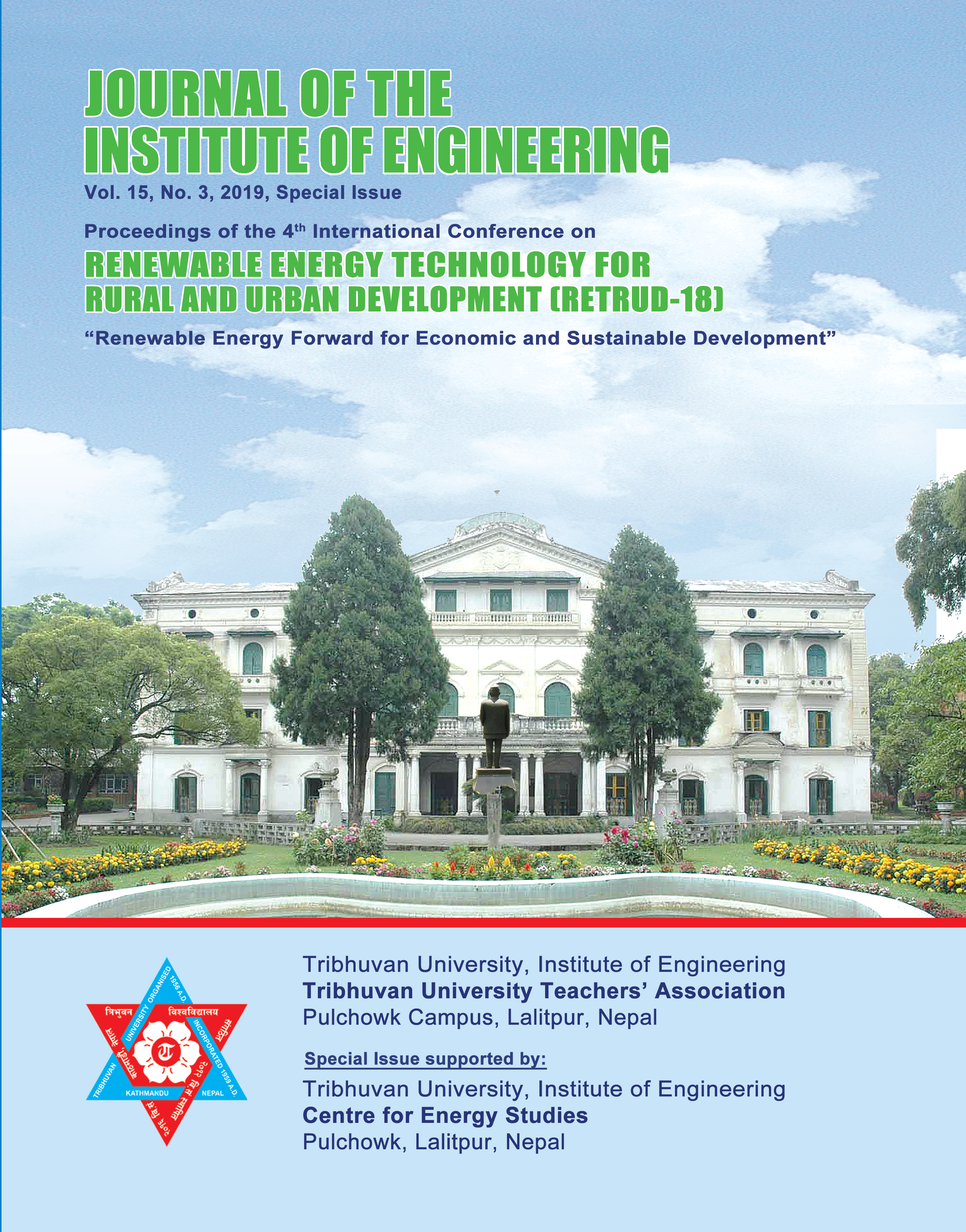Framework for Achieving Sustainable Micro Grid Systems in Rural Communities
DOI:
https://doi.org/10.3126/jie.v15i3.31619Keywords:
Micro-Grid, Off-grid Energy, ABC Business ModelAbstract
This paper presents a concise framework for achieving sustainable and well-grounded mini-grid system across rural communities by interpreting various critical determinants which directly/indirectly affect a localized energy grid and draws a co-relation between them. The end product is a matrix that guides private sectors to rate an area in terms of its viability to cater an autonomous energy generation system by blending technology with economic and social aspects. More importantly the framework also addressed methodology for scaling a plant – circumstances such as post-grid arrival, rise in energy demand, conjunction with new generation plants required to meet the rise. Furthermore, the paper provides a commentary on business models and blend of financial indices suitable for decentralized system for long term financial viability for private sectors. GoN has been supporting rural micro-grids through Alternative Energy Promotion Centre (AEPC). Until recently, rural off-grid areas of Nepal had community led projects that would become defunct after arrival of national grid, fragmented planning, substandard technology, O&M issues etc. Now, with concept of private sector led projects opening up, the paper provides a skeleton for establishing mini-grid systems designed by negating those downsides that are practically feasible.
This study was performed in various micro-grid sites in Makawanpur District. Research was carried out beforehand via online technology. This was to gain a sense of understanding before visiting the district. A field visit took place from April 24-26, 2018 to verify the research and to perform further analysis. Details were gathered firsthand through empathizing with locals, who filled out a questionnaire set Benchmarks were established in relation to technology, economics and social factors. Analysis was carried out, with the villages ranked against each other.
Downloads
Downloads
Published
How to Cite
Issue
Section
License
The Copyright is held by Journal of the Institute of Engineering, IOE, TU




